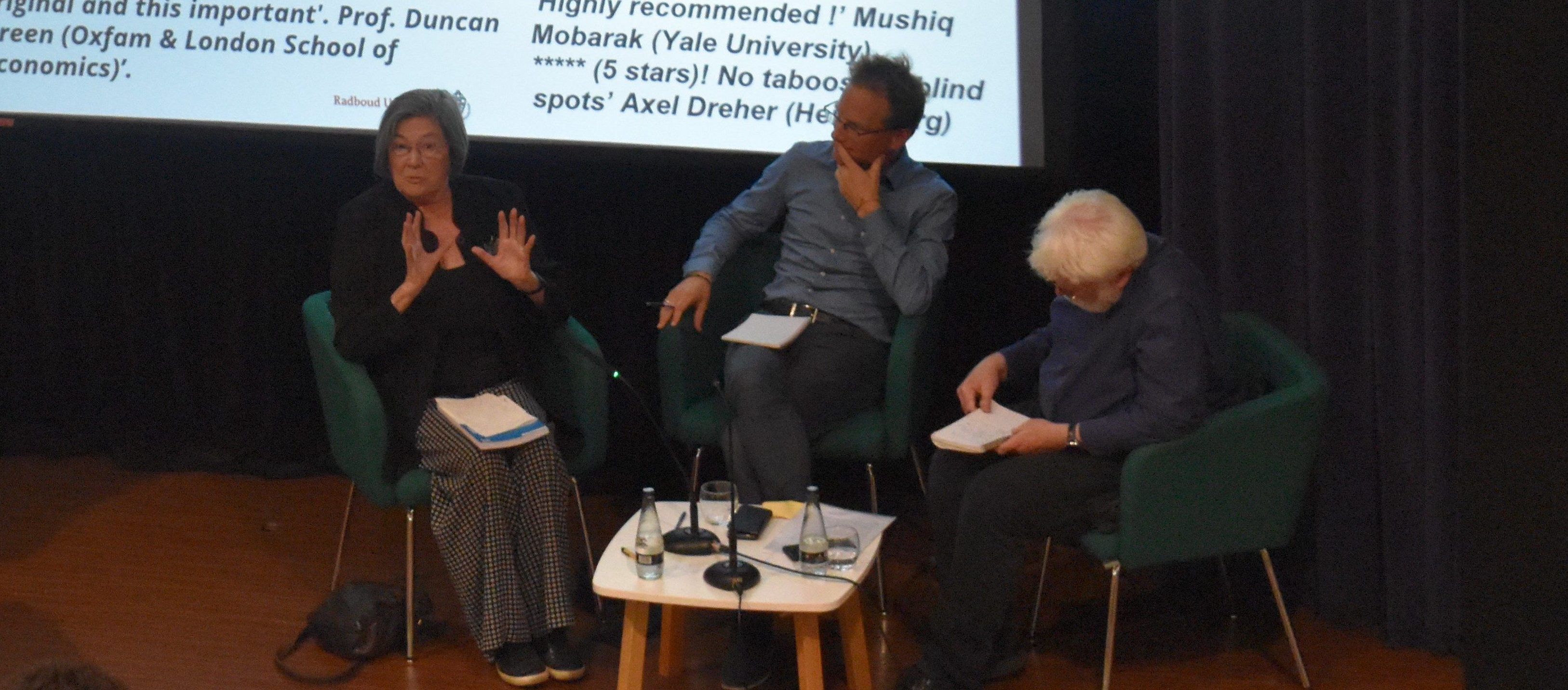Professor in Practice, Duncan Green, Zooms In with department scholars to find out what they’re up to in lockdown and how their research relates to the Covid-19 pandemic. The fourth Zooming In episode is with Professor Jean-Paul Faguet, who looks at examples of decentralised and centralised states around the world and compares the varying degrees of success they have had in dealing with Covid-19.
Selected questions and answers from the interview:
DG: Tell us a bit about your life before Academia
J-PF: Like a lot of people at LSE I’m a fairly mixed up person in terms of where I’m from. My father is French, my mother’s from Colombia. I was born in Canada, grew up in the US and came to London via Bolivia.
I went to Bolivia after Harvard, as part of a small World Bank office. I was there when the Bolivians were introducing jaw-dropping reforms.
I was part of the good side of the World Bank, working on health, education, early childhood development, rural development and social investment. But a lot of what we were doing was trying to make up for the enormous deficit in education and health that Bolivia had acquired thanks to the crisis of the 1980s and the structural adjustment, which ended up completely gutting the education and health systems.
About a year and half into my 3 year time with the World Bank, my heart kind of shifted and I crossed the table to sit with my Bolivian colleagues – first my heart and then my head came to feel that on a number of issues, the Bolivians were right and the World Bank was wrong. I went native in a really big way.
DG: What are your research interests
J-PF: I went to the LSE and did a PhD in the ID department on the political economy of decentralization, with Bolivia as my case study and it became my passion. The thing about decentralization is that it falls under the motto of taking government closer to the people. It’s going from a situation where all the interesting decisions are being taken at the national level in the capital city and devolving authority and resources down to the regional and local levels of government. It makes democracy more real and more robust.
We’re seeing it now in the USA. The Central Government goes completely haywire, but the situation is rescued at the state and local level because you have competent authorities with local accountability.
The problem is that no-one gets into politics to give away power and control, and yet that is a good definition of decentralization. So how does this happen? Usually because decentralization solves some other, unrelated problem – they’re trying to hold a coalition together or undermine the opposition, and think decentralization will help. Take South Africa – Nelson Mandela was trying to negotiate a peaceful transition with a powerful white majority. De Klerk saw some kind of transition was necessary and calmed the white minority via decentralization – they would remain in control of local units of government, even after the transition.
DG: Whats the relevance of decentralised systems to Covid
J-PF: Have decentralized systems responded better? What we can see from early evidence – look at US v Germany as federal systems, and Vietnam v the Philippines.
Germany and Vietnam have been much more successful than other countries, especially the US. Germany is highly decentralized, Vietnam is highly centralized, and the Philippines is a kind of 3rd dimension – a decentralized country at a similar level of development to Vietnam.
What we see when we go round these countries is that success is down to a very early aggressive action to curb an exponentially rising rate of infection. So there’s a huge bonus to early, aggressive action and getting information about where the hotspots are, do contact tracing, isolate the infected, and cut off the explosive march of the disease.
So far there is no overall connection to decentralization. What I’m seeing is that a highly centralized system puts all the eggs in one basket – the first intuition is that a highly centralized chain of command is what you want, but you can have that in both a centralized and a decentralized system. You can have a very centralized public health authority like the US Center for Disease Control, which was the world champion as recently as the 2014 Ebola crisis.
The problem is when the centralized government does the wrong thing, there is no-one to make up for it.
A reasonable hypothesis is that you will get a greater range of performance in centralized systems because of the eggs in one basket phenomenon. Vietnam is my candidate for the best performing system. No deaths in a country of 100 million people, because of their highly centralized health system.
Tune in for next week’s Zooming In With: Professor Naila Kabeer
The views expressed in this post are those of the author and in no way reflect those of the International Development LSE blog or the London School of Economics and Political Science.





